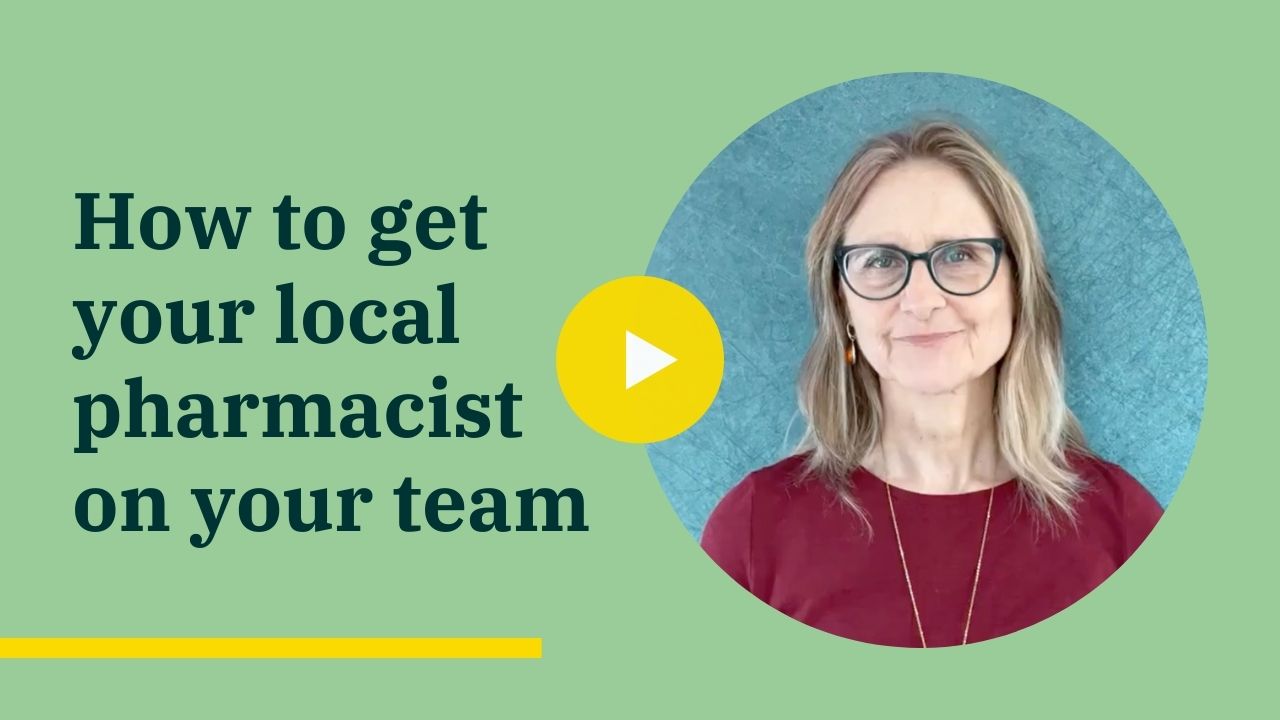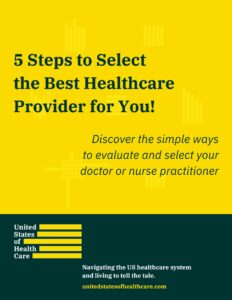The Role of the Community Pharmacist on Your Healthcare Team
You can gain valuable information when you communicate with your community pharmacist like they are part of your healthcare team.
More available than most of our healthcare providers, the pharmacist's role on your healthcare team is to help coordinate all medication-related aspects of your care. That includes over-the-counter medicines, supplements and prescription medicines. Everyone has interacted with a pharmacist at some point.
Do you know how you can bring this important person onto your healthcare team for better health? This video provides 3 tips for building your relationship with your community pharmacist.
Sign up to be the first to know about new healthcare tips.
You'll also receive healthcare insights, stories, tools, and expert tips straight to your inbox.
Video Transcript
Relationship building, it's good for your health. But how do you go about it when it comes to your healthcare providers?
Part of the challenge with healthcare is access. What do I mean by that? How often do you get to see your primary care provider? Once a year? Twice a year? How long do you get to talk to them during this time? 10 minutes, 15 minutes, less? It's all limited and rushed and it's not our fault. It's not the doctor's fault. There's a lot wrong with the system that's out of our control and out of their control.
So what can you do to get the most given the way things are? Well, there is one healthcare provider that you can still have an opportunity to see and to talk to a little more often and that's the community pharmacist.
So you get healthcare advice directly from a highly trained professional when you need it by getting to know your community pharmacist. I know it made a difference in my life and the life of my family.
When I had a family member who came home after knee replacement surgery, one of our challenges was to manage the medicines that he needed to take after the surgery, plus the multiple medicines he was already taking. So medication management that big scary term became like a new phrase in my vocabulary. Yikes, I had to learn quickly. So he comes home. Surgery goes well. Everything’s organized chaos in the house. How would he get around, nurses, and PT coming in and out of the home for a follow-up care, instructions from the surgeon, follow-up appointments. And then, in our case, these multiple medications that needed to be taken. And they needed to be organized, so that they were taken properly. A lot of work. So I just get exhausted, really, just describing it to you right now.
So the home health nurse, she became my lifeline and I asked her about a recommendation and her first suggestion was get a pill packing service through your local pharmacy. And in our case, it was a local independent. And with that tip, our family began a long-term relationship, a very close relationship with a new partner in our healthcare, and that was our community pharmacist.
And later in our story, this pharmacist wound up alerting us to changes in my family member's behavior that helped us to address a health crisis head-on. So I can't stress enough how much it can be a help to nurture that relationship in your health life with the community pharmacist. And remember, stick to one pharmacy.
Here are three tips for how to pick and engage with your community pharmacist. Number one, check them out. Do your own secret shopper mission before you pick a pharmacy. Stop by the store and observe and see is there a good counseling area? Is the pharmacist talking to the clients? For example, you can go up and ask about an over-the-counter product. Does the pharmacist come out and walk the aisle with you to point out her recommendations? That’s the key. That's the example of a really good pharmacist.
Number two: Say “Yes” to the consult. Taking a new medicine? When asked, if you have any questions for the pharmacist, say yes, and then just simply ask the pharmacist: “Can you please just give me an idea of what I can expect with this new medicine?” Let them know it's new for you. This is their jam. They want to talk to you about this. Or if you're just beginning to build your relationship, say yes to the consult, introduce yourself to the pharmacist. Think of them as part of your healthcare team. And let them know that this is your intention. That's tip number two.
And then tip number three: pick the least busy store if you're in a chain situation. It's especially a good idea to be with a chain if your split between geographies and locations because then there's a centralized profile of your medicines. So that's something to just keep in mind. But you can also...there's local independents. Just make sure that you go at least busy time. So you want to have a location at a store in mind where you know that you can build that relationship. And slower stores mean pharmacists may have more time for you. So something to take take into consideration. In our case, it was the perfect choice to go with a local independent. So just look at all of your options.
So are you engaged with your local pharmacist? Share in the comments below what you do to develop your relationship and let us know how the community pharmacist has made a difference in your health and the health of your family.
I'll respond with some additional tips of my own and those of other healthcare insiders. And I would really love to share more of my thoughts and tips to help you and your audience create the mindshift to owning it when it comes to your health. So I'm available to share this information with your online community, your podcast, audience – you name it. Click the link in the first comment and schedule 15 minutes and we'll see if we have a match.


